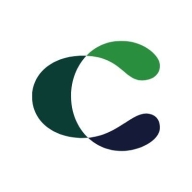

Contrast Security Assess and GitHub Advanced Security are products in the software security domain. GitHub Advanced Security has a feature advantage, making it a preferred choice despite higher pricing.
Features: Contrast Security Assess offers runtime protection, real-time vulnerability detection, and sensitive data protection. GitHub Advanced Security provides seamless integration with GitHub repositories, superior code scanning, and advanced vulnerability alerts.
Room for Improvement: Contrast Security Assess could enhance its code scanning capabilities, broaden integration options beyond runtime environments, and improve alert customization features. GitHub Advanced Security might benefit from easier deployment outside GitHub environments, better support for non-GitHub users, and more comprehensive sensitive data protection.
Ease of Deployment and Customer Service: Contrast Security Assess has a straightforward deployment model with effective customer support, enabling quick onboarding. GitHub Advanced Security integrates smoothly with GitHub workflows, simplifying deployment for users but may present challenges in non-GitHub contexts. Both offer commendable support, with Contrast Security Assess noted for faster response times.
Pricing and ROI: Contrast Security Assess has a lower upfront cost, offering good immediate ROI with its monitoring. GitHub Advanced Security has a higher setup cost but provides ROI for organizations focusing on continuous integration due to its advanced automation features. Contrast Security Assess is attractive for smaller organizations, while GitHub Advanced Security suits larger enterprises seeking integrated solutions.
| Product | Market Share (%) |
|---|---|
| GitHub Advanced Security | 5.8% |
| Contrast Security Assess | 1.0% |
| Other | 93.2% |

| Company Size | Count |
|---|---|
| Small Business | 2 |
| Midsize Enterprise | 3 |
| Large Enterprise | 6 |
| Company Size | Count |
|---|---|
| Small Business | 1 |
| Midsize Enterprise | 4 |
| Large Enterprise | 7 |
Contrast Security is the world’s leading provider of security technology that enables software applications to protect themselves against cyberattacks, heralding the new era of self-protecting software. Contrast's patented deep security instrumentation is the breakthrough technology that enables highly accurate assessment and always-on protection of an entire application portfolio, without disruptive scanning or expensive security experts. Only Contrast has sensors that work actively inside applications to uncover vulnerabilities, prevent data breaches, and secure the entire enterprise from development, to operations, to production.
GitHub Advanced Security secures data by scanning for vulnerabilities in dependencies, secret scanning, and protecting sensitive information. It integrates seamlessly, reducing reliance on multiple tools and optimizing vulnerability detection.
GitHub Advanced Security is designed to enhance security awareness by offering comprehensive tools for secret scanning, code analysis, and SCSS dependency checks. AI-driven features deliver accurate security insights while minimizing false positives. It provides valuable integration with Azure DevOps, maintaining control within dashboards and enabling external systems' support through APIs. With CodeQL, users can perform custom queries across projects. Propelled by Microsoft, the platform enhances operational frameworks with essential security features, although improvements are needed in dashboard consolidation, reporting, and integration mechanisms. Users seek better customizability, language support, and training resources to ensure smoother implementation.
What are the key features of GitHub Advanced Security?Industries implement GitHub Advanced Security to maintain robust security standards. It is favored by technology sectors seeking seamless integration with Azure DevOps and looking for customizable security tools tailored to project needs. Financial institutions value its accurate threat detection and compliance support, while enterprises focus on its comprehensive dependency scanning and code analysis capabilities to safeguard critical assets. The adaptability of GitHub Advanced Security across different operational environments illustrates its practical benefits.
We monitor all Application Security Tools reviews to prevent fraudulent reviews and keep review quality high. We do not post reviews by company employees or direct competitors. We validate each review for authenticity via cross-reference with LinkedIn, and personal follow-up with the reviewer when necessary.